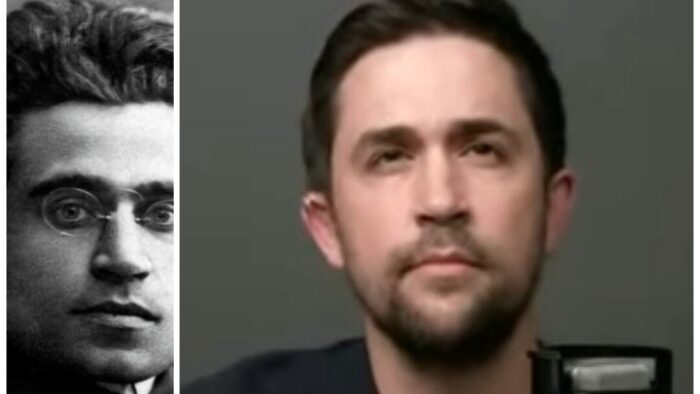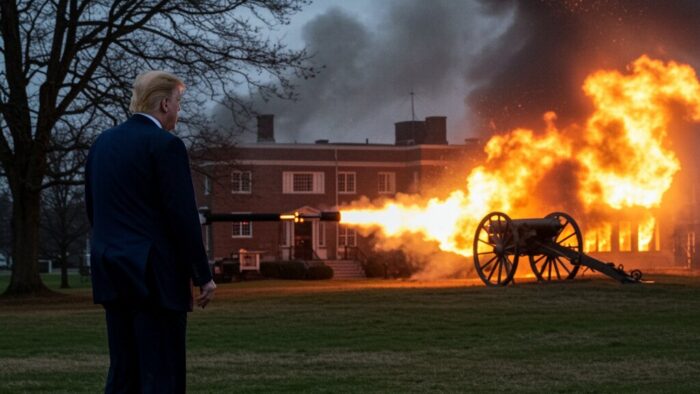Christopher Rufo and the Manhattan Institute have unveiled a comprehensive blueprint to transform America’s universities through federal funding leverage, targeting over $150 billion in annual taxpayer subsidies to enforce academic standards and eliminate ideological bias. On 15 July 2025, The Free Press reported that Christopher Rufo and a coalition of academics released the Manhattan Statement on Higher Education, establishing six core principles, including truth over ideology, institutional neutrality, and color-blind equality as conditions for continued federal support. The article begins:
Since taking office in January, President Donald Trump has been engaged in a high-stakes conflict with America’s elite universities and, by proxy, American universities as a whole. The administration’s supporters have applauded the president’s decision to strip billions of dollars in funding from the Ivy League, while critics have warned that such actions are an overreach and will have a negative impact on the hard sciences. Beneath the dueling headlines, however, there appears to be an uneasy, if often unstated, agreement: Something is deeply wrong with academia, and no one is quite sure what to do about it. Conservatives have long made the argument that academia has been corrupted. And since the Black Lives Matter riots of 2020 and the Hamas terror campaign of 2023, an increasing number of centrists and liberals have joined the chorus, recognizing that many once-great universities had been captured by destructive ideologies and are no longer truth-seeking institutions.
Read more: https://www.thefp.com/p/the-president-wants-to-fix-higher-education-policy-reform-campus-university
Key Points
- The Manhattan Statement demands that universities abolish DEI bureaucracies and adopt color-blind equality policies, with 71% of Americans supporting equal treatment regardless of race or gender.
- Universities must cease direct participation in social and political activism, focusing on individual scholar and student criticism rather than corporate institutional positions.
- The reform proposal includes swift penalties for students who disrupt speakers, vandalize property, or occupy buildings, with 67% of Americans supporting expulsion for such activities.
- Christopher Rufo’s coalition previously exposed Harvard president Claudine Gay for plagiarism and transformed New College of Florida into a classical liberal arts institution.
GIOR Analysis: Christopher Rufo, the Manhattan Institute, and National Conservatism
The Manhattan Statement on Higher Education is a clear articulation of national conservative ideology, applying its core principles to the academic sphere. It portrays elite universities as having broken a civic compact by abandoning truth in favor of radical ideologies, particularly racial identity politics and progressive social agendas. In response, it demands a reassertion of color-blind equality, institutional neutrality, and Western civilizational values, framing these as not only educational principles but as national imperatives. The call to abolish DEI bureaucracies and reorient universities around “truth over ideology” echoes the national conservative emphasis on restoring cultural cohesion through education grounded in traditional values.
Equally aligned is the demand to condition public funding—over $150 billion annually—on ideological compliance, reflecting a broader economic nationalism that insists public institutions serve the nation’s interests. Universities are portrayed not as independent centers of thought but as wayward arms of the state, to be brought back in line with their founding mission: to educate citizens in service of the republic. This is national conservatism in action—a strategic push to remake academia as a guardian of national identity rather than a vehicle for cultural subversion.
Christopher Rufo has emerged as a central figure in the American global national conservative movement, blending ideological combat with operational tactics to reshape institutions and public discourse. Drawing from Gramsci’s theories of cultural hegemony, Rufo and his allies have inverted leftist strategies to wage a counterrevolution against progressive dominance in academia, media, and government, framing their efforts as a defense of national identity and traditional values against perceived elite overreach. This ideological project is not confined to domestic politics; Rufo and other national conservatives have cultivated transatlantic alliances with European right-wing leaders like Viktor Orbán, whose Hungary serves as both a model and a node in a broader network challenging liberal internationalism and global governance.
The operational playbook includes targeting universities as battlegrounds for cultural control, leveraging executive power to defund or restructure institutions, and exporting these tactics through conferences and media campaigns that amplify nationalist, anti-globalist, and anti-woke messaging. These efforts are reinforced by extensive personal and institutional ties between American conservatives and Orbán’s Hungary, creating a feedback loop where policy ideas and rhetorical frames circulate across borders, often with the tacit or explicit support of actors seeking to destabilize the liberal democratic order.
The movement’s success hinges on its ability to reframe complex social issues in Manichean terms, mobilize populist discontent, and exploit institutional vulnerabilities—a strategy that has reshaped the Republican Party’s priorities and drawn scrutiny for its potential to empower authoritarian actors both at home and abroad.
The following are the top five individuals who signed the Manhattan Statement in terms of their influence on the Global National Conservative Alliance (GNCA):
- Yoram Hazony
Role: Chairman of the Edmund Burke Foundation
Why: Architect of the National Conservatism (NatCon) movement; organizer of the NatCon conferences; author of The Virtue of Nationalism
Influence: Ideological leader of the entire movement - Christopher Rufo
Role: Senior Fellow at the Manhattan Institute
Why: Chief strategist behind anti-CRT, anti-DEI campaigns; advisor to Ron DeSantis; transformed New College of Florida into a national conservative model
Influence: Tactical enforcer of national conservative education policy - Ben Shapiro
Role: Co-founder of The Daily Wire
Why: Major media influencer promoting national conservative views on family, religion, and education; explicitly supports Hazony’s NatCon framework
Influence: Mass media mouthpiece for national conservatism - Victor Davis Hanson
Role: Senior Fellow at the Hoover Institution
Why: Prominent defender of Western identity and anti-globalist nationalism; regular contributor to American Greatness, Claremont Review of Books
Influence: Intellectual bridge between traditional conservatism and national conservatism - Scott Yenor
Role: Claremont Institute Fellow
Why: Leading voice on national conservative policy for family and education; author of policy proposals to reshape gender norms via state power
Influence: Policy theorist for national conservative social order
External References:
Disclaimer
The Global Influence Operations Report (GIOR) employs AI throughout the posting process, including generating summaries of news items, the introduction, key points, and often the “context” section. We recommend verifying all information before use. Additionally, images are AI-generated and intended solely for illustrative purposes. While they represent the events or individuals discussed, they should not be interpreted as real-world photography.










